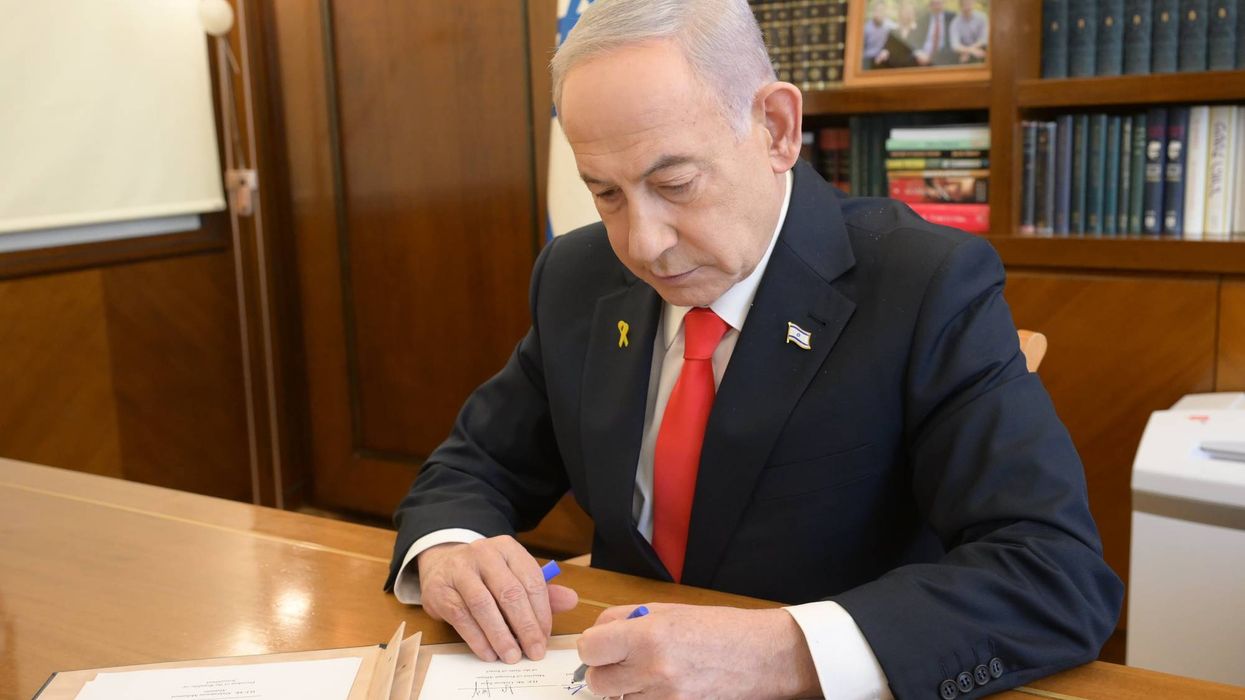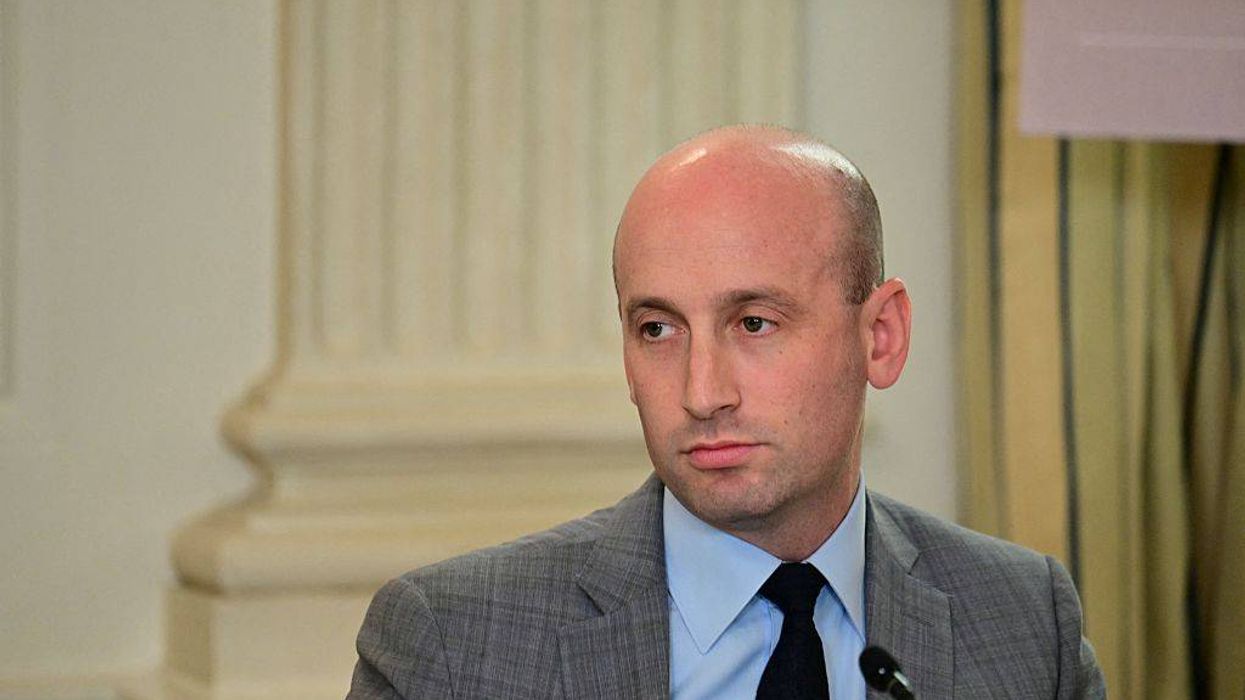November, 06 2024, 09:13am EDT

UCS Comments on Repercussions of Trump Election on Global Climate Action in Lead Up to COP29
Statement by Rachel Cleetus, Union of Concerned Scientists
Donald Trump has officially been declared the winner of the U.S. presidential elections—an outcome with monumental repercussions on the international stage, especially given his withdrawal from the Paris climate agreement during his previous term. It also comes just days before the annual U.N. climate talks (also referred to as COP29), kick off in Baku, Azerbaijan. The Union of Concerned Scientists (UCS) will be attending and joining officials from more than 190 nations—as well as representatives of subnational governments, businesses and other nongovernmental organizations—working to ensure all countries are on track to increase their climate ambition to keep the goals of the Paris Agreement in reach, with a heightened focus this year on the importance of international climate financing to help meet those goals.
Below is a statement by Dr. Rachel Cleetus, the policy director and lead economist for the Climate and Energy Program at UCS. She has been attending the U.N.’s international climate talks and has partnered with the international community on climate and energy policies for about 20 years.
“President-elect Trump ran a brutish campaign that disregarded or misrepresented scientific facts, while promising to boost fossil fuel companies’ fortunes. The nation and world can expect the incoming Trump administration to take a wrecking ball to global climate diplomacy. That will likely include the shameful act of taking the United States out of the Paris Agreement again. Many domestic climate policies aren’t safe either, though the Inflation Reduction Act’s clean energy provisions could prove durable as they’re delivering significant economic benefits to all states and have the support of workers, businesses and policymakers across the political spectrum.
“The fact remains that existing policies aren’t enough to help the United States meet its 2030 goal to cut emissions in half below 2005 levels, let alone deliver additional reductions by 2035. And with U.S. federal climate action expected to be derailed for the next four years, other nations, U.S. subnational governments and businesses will need to fill the void as much as possible. The science on climate change is unforgiving, with every year of delay locking in more costs and more irreversible changes, and everyday people paying the steepest price.”
These talks come during a year of record-breaking heat, and on the heels of a particularly deadly and dangerous spate of extreme weather and climate disasters fueled by climate change. Additionally, a flurry of scientific reports—including the International Energy Agency’s 2024 World Energy Outlook and the United Nations Environment Programme’s 2024 Emissions Gap Report—paint a picture of how far off track the world is currently from meeting global climate goals, how much higher global average temperatures could rise if nations fail to take urgent corrective actions to address the climate crisis, and what actions must be taken to make steep, rapid cuts in heat-trapping emissions and to transition to clean energy.
While the United States—the world's largest historical emitter of global warming emissions—has pledged to reduce its emissions by 50-52% below 2005 levels by the end of the decade, even with passage of the Inflation Reduction Act current policies remain insufficient to achieve this goal with the country on track to cut heat-trapping emissions 32-43%. Collectively, nations are on a path to meet or exceed between 2.6 and 3.1 degrees Celsius of warming globally, if pledges remain stagnant. To catch up, the United States and other major emitting countries need to put additional policies in place to rapidly increase clean energy deployment and phase out fossil fuels, and wealthy nations need to ramp up climate finance for lower income countries to also cut their emissions.
The Union of Concerned Scientists is the leading science-based nonprofit working for a healthy environment and a safer world. UCS combines independent scientific research and citizen action to develop innovative, practical solutions and to secure responsible changes in government policy, corporate practices, and consumer choices.
LATEST NEWS
Israel Becomes First Nation to Recognize Somaliland—But Still Rejects Palestine
One foreign policy analyst said that Israel views Somaliland as a "strategic location as a launch pad for strikes on Yemen and potentially a place to forcibly 'relocate' Palestinians to."
Dec 26, 2025
Israel became the first nation to recognize Somaliland as a sovereign state on Friday, a move that was met with criticism from international observers who questioned its continued unwillingness to recognize a Palestinian state.
Somaliland, a breakaway region in the north of Somalia that is home to more than 6 million people, declared independence in 1991, but until now, no United Nations member states have recognized its claim.
Israeli Prime Minister Benjamin Netanyahu described his government's recognition of the territory as being “in the spirit of the Abraham Accords,” a deal brokered by US President Donald Trump for Israel to normalize relations with some of its Arab neighbors, which has itself been accused of disregarding the issue of Palestinian sovereignty.
Speaking over a video call with Abdirahman Mohamed Abdullahi, the president of Somaliland, Netanyahu said he was signing "Israel's official recognition of Somaliland and its right of self-determination," calling the friendship between the two nations "seminal and historic."
In a statement, Abdullahi said Israel's recognition "represents a milestone in Somaliland's long-standing pursuit of international legitimacy, reaffirming its historical, legal, and moral entitlement to statehood."
However, a report from the Guardian suggested that Israel's recognition of Somaliland has less to do with the self-determination of its people than with Israel's military interests. It cited a November report from a prominent Israeli think tank, which argued that Somaliland could be used as a base of military operations against Yemen's Houthis.
Somaliland, located in the horn of Africa just south of the Arabian Peninsula, already hosts an air base that the United Arab Emirates has used to conduct operations against the Yemeni militant group, which—until a "ceasefire" agreement was reached in October—launched regular attacks on Israel and its vessels in the Red Sea in what it said was an effort to pressure it to stop its genocidal military campaign in Gaza.
Egypt and Turkey condemned Israel's agreement with Somaliland, saying, "This initiative by Israel, which aligns with its expansionist policy and its efforts to do everything to prevent the recognition of a Palestinian state, constitutes overt interference in Somalia’s domestic affairs.”
Foreign ministers for the two nations joined those of Somalia and neighboring Djibouti on a call following the development, where they called for the continued unity of Somalia as an institution and condemned Israel's efforts "to displace the Palestinian people from their land."
Adil Haque, a professor at Rutgers Law School, pointed out on social media that, in August, Netanyahu met with Somaliland's leadership "offering recognition in exchange for helping Israel to illegally deport Palestinians from Gaza."
Somaliland was one of many nations reportedly approached by Israel to warehouse Palestinians exiled from the strip permanently—others included Indonesia, Uganda, South Sudan, and Libya.
Following reports at the time that Somalia was also in consideration, its president, Hassan Sheikh Mohamud, responded that "the idea of removing Palestine from their own land and putting them into another, other people’s land—I don’t see that that’s a solution at all."
A senior Israeli official who spoke on condition of anonymity with Israel's Channel 12 reportedly agreed that Netanyahu's recognition of Somaliland undermines his repeated assertions that there will never be a Palestinian state. As the Times of Israel summarized: "The official... points out that while Israel is the first country to grant recognition to Somaliland, the rest of the world considers the breakaway region an integral part of Somalia."
Tariq Kenney-Shawa, a fellow at the Palestinian Policy Network and a producer at AJ+, said: "To state the obvious, Israel wouldn’t recognize anyone unless there was something in it for them. Israel doesn’t give a shit about Somaliland apart from its strategic location as a launch pad for strikes on Yemen and potentially a place to forcibly 'relocate' Palestinians to."
Keep ReadingShow Less
'Horrible Racist' Stephen Miller Slammed for Using Classic TV Christmas Special to Bash Immigrants
"Dean Martin and Frank Sinatra would hate Stephen Miller and his politics," said one critic in response to Miller.
Dec 26, 2025
Top Trump White House aide Stephen Miller on Friday elicited disgust after he said that a beloved Christmas television special reminded him of his own personal animus toward immigrants.
Miller, often seen as the architect of President Donald Trump's mass deportation policy, revealed in a post on X that he and his children had just watched "Christmas with The Martins and The Sinatras," a one-off 1967 TV holiday special that featured singers Dean Martin and Frank Sinatra.
Miller then quickly pivoted from that to once again bash immigrants who come to the US.
"Imagine watching that," Miller wrote, "and thinking America needed infinity migrants from the third world."
As Rolling Stone politics reporter Nikki McCann Ramírez pointed out in response, both Martin and Sinatra both had parents who were first-generation Italian immigrants.
"Dean Martin was born Dino Paul Crocetti and gave himself a stage name because of braindead xenophobes like Stephen," McCann Ramírez observed. "Sinatra was also a child of Italian immigrants. Imagine watching them and thinking immigrants didn’t build the culture you fetishize today."
A similar point was made by civil rights attorney Sherrilyn Ifill in a post on Bluesky.
"Imagine watching Sinatra, son of Dolly and Antonini born in Genoa and Sicily, respectively," she wrote, "and Martin, son of Gaetano and Angela, born in Montesilvano, Italy and Ohio respectively... and crusading against the value of children of immigrants to the US."
Journalist and author Jeff Yang added some historical context to Miller's remarks by noting that Italian immigrants in the early and middle decades of the 20th century faced many of the same stereotypes that Miller and his political allies ascribe to immigrants from Latin America.
"A reminder," Yang wrote, while also posting old cartoons that featured racist depictions of Italians, "that Dean Martin and Frank Sinatra’s parents emigrated here during a period when Italians were considered to be a genetically inferior and criminal-minded underclass that Stephen Miller’s racist predecessors said should be excluded from America."
Yang added that Frank Sinatra's mother "ran an underground free abortion clinic, chained herself to a fence to fight for women’s suffrage, and was an extremely influential organizer for the Democratic Party."
Princeton University historian Kevin Kruse promoted Yang's thread that demonstrated Miller's apparent ignorance of Dean and Sinatra's family histories, and said it showed the Trump adviser is "a horrible racist in the sense that he is actually not that good at being racist."
Tim Wise, a senior fellow at the African American Policy Forum, managed to find an upside to Miller's holiday-themed anti-immigrant rant.
"The one silver lining in all this sickness is that one day your children will despise you as much as most of America already does," he commented.
Film producer Franklin Leonard was even more succinct in his response to Miller.
"Dean Martin and Frank Sinatra would hate Stephen Miller and his politics," he wrote.
Keep ReadingShow Less
Trump's 'Bomb Magnet' Fleet Could 'Never Sail' and Waste Billions of Dollars: Experts
"A future administration will cancel the program before the first ship hits the water," said one critic.
Dec 26, 2025
President Donald Trump on Monday announced that the US Navy is building a new class of warship that will be named after him—but naval warfare experts are warning the project looks like a wasteful boondoggle.
Mark Cancian, a senior adviser at the Center for Strategic and International Studies, wrote an analysis of the Trump-branded ships the day after their announcement in which he bluntly predicted that they "will never sail."
Among other things, Cancian argued that the ship being commissioned by the president "will take years to design, cost $9 billion each to build, and contravene the Navy’s new concept of operations, which envisions distributed firepower."
As if that weren't enough, Cancian projected that "a future administration will cancel the program before the first ship hits the water."
Dan Grazier, a senior fellow and program director at the Stimson Center, also predicted doom for Trump's prized ships, which he said would be too overloaded with the latest cutting-edge technology to be effective at naval combat.
"Every gadget you add to one of these systems is one more thing that can break," Grazier wrote in an analysis published by the Quincy Institute for Responsible Statecraft. "When designers lack discipline, as they obviously did while sketching out this latest future boondoggle, a simple mathematical truth asserts itself."
In fact, Grazier felt so confident in his gloomy prognostication for Trump's warships that he told readers they could "take it to the bank."
"The Navy will spend tens of billions of dollars over the course of the next decade on the Trump-class program," he wrote. "At best, the Navy will receive three troublesome ships that will cost more than $10 billion each before then entire scheme is abandoned."
William Hartung, a senior research fellow at the Quincy Institute for Responsible Statecraft, flagged a particularly troubling detail of Trump's warship plan in a lengthy analysis published by Forbes on Thursday.
"The most troubling aspect of the proposed Trump-class ships is that they are supposed to carry sea-launched nuclear armed cruise missiles," Hartung explained. "The last thing the US military needs is yet another way to deliver nuclear weapons. And because nuclear-armed cruise missiles are difficult to tell from cruise missiles armed with nonnuclear bombs, there is a danger that and adversary could mistake an attack with a nonnuclear armed missile with a nuclear attack, with devastating consequences."
Hartung also pointed out that the ships, which are projected to cost billions each, are not the only pricey weapons system that Trump is planning to build, as earlier this year he vowed to build a "Golden Dome" missile defense system that is projected to cost anywhere from $292 billion and $3.6 trillion.
"It’s time for Congress to do its oversight job and slow down these 'golden' programs until the administration can make a plausible case that they can be both affordable and effective," Hartung concluded. "The odds are against them."
Bernard Loo, senior fellow at Singapore’s S. Rajaratnam School of International Studies, said in an interview with CNBC that Trump's proposed ships appear to be "a prestige project more than anything else."
Loo argued that the proposed ships' massive size, with each projected to displace more than 35,000 tons while measuring more than 840 feet, would make each vessel a "bomb magnet" for adversaries.
"The size and the prestige value of it all make it an even more tempting target," Loo added.
Keep ReadingShow Less
Most Popular


